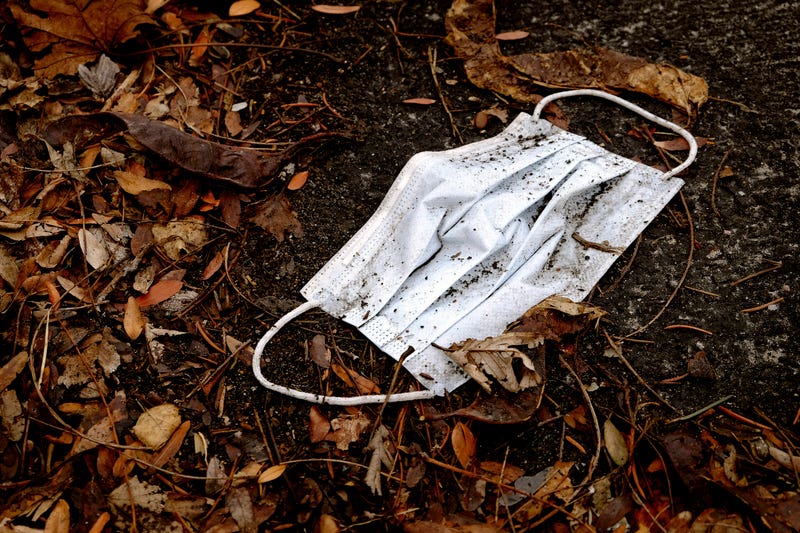
Disposable face masks have become the latest addition to the world's litter pile, and environmental experts are warning about the threat they pose to wild life and the natural world.
"There's some estimates of like 94 million masks being thrown away every week in the U.S. and so, that's a lot of masks," Dr. Jennifer Mattei, a professor of biology at Sacred Heart University, said, "People may not realize how it can build up."
According to a report from the marine conservation organization OceansAsia, 1.56 billion face masks are estimated to have entered the world's oceans in 2020.
In March, the nonprofit environmental advocacy group Ocean Conservancy released a report that showed over 100,000 individual pieces of personal protective equipment (PPE) were collected in the later half of 2020.
The data came from cleanup volunteers who used the organization's Clean Swell mobile app. PPE included face masks, gloves, face shields and sanitizing wipes.
Mattei explained that face masks pose a particular threat to birds and other animals due to entanglement.
"If [face masks] land in water like the Long Island Sound, you might get other types of organisms entangled, everything from crabs to fish, or they might be misidentified as food so some wildlife might try to eat them," Mattei said.
When disposing of them, Mattei suggests cutting or pulling off the straps of disposable masks to avoid animal entanglement.
Littered disposable face masks also pose a threat to the environment by adding to the ever-growing problem of plastic pollution, Mattei said.
"The plastics that are used to make some of these masks can also break down and just add to the volume that everyone has heard about of plastics in the ocean. So, it becomes a pollutant in its large form and even as they break down," she said.
Since disposable masks--such as your average white with blue one-time use masks--are not biodegradable, Mattei recommends switching to reusable cotton masks or single-use biodegradable masks.
For those who already have a box of disposable masks at home, Mattei said remember to dispose of them properly.
"Make sure they're buried and properly disposed in the garbage and sent to the landfill. That's the best place for them," she said.
To end a week of celebrating Earth Day, the State Department of Energy and Environmental Protection reminded those that visit state parks to refrain from littering and to keep state parks clean.
